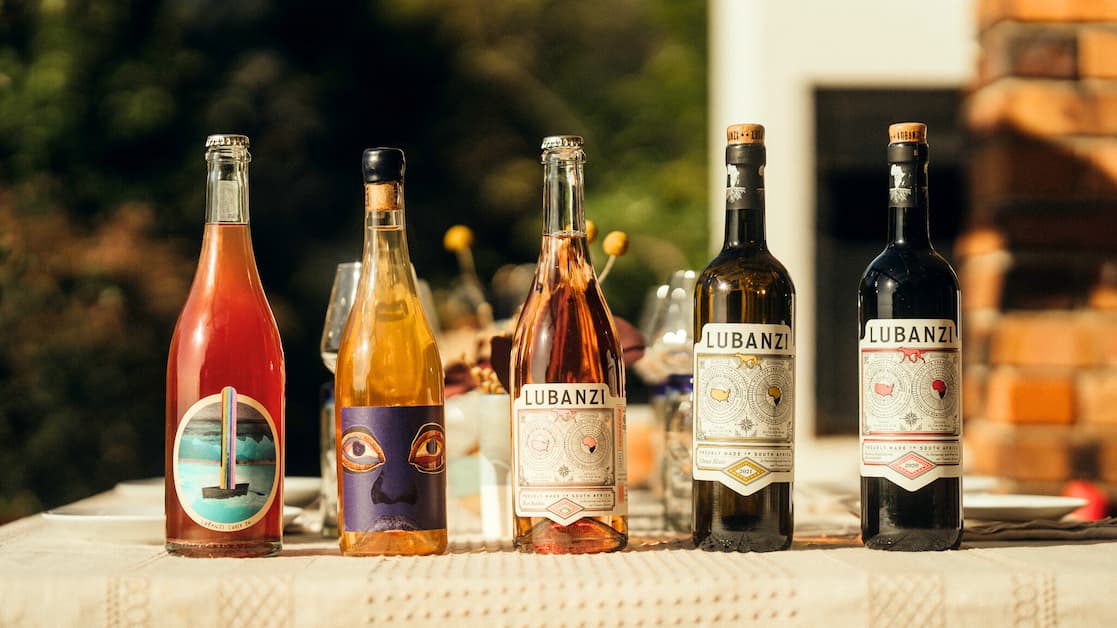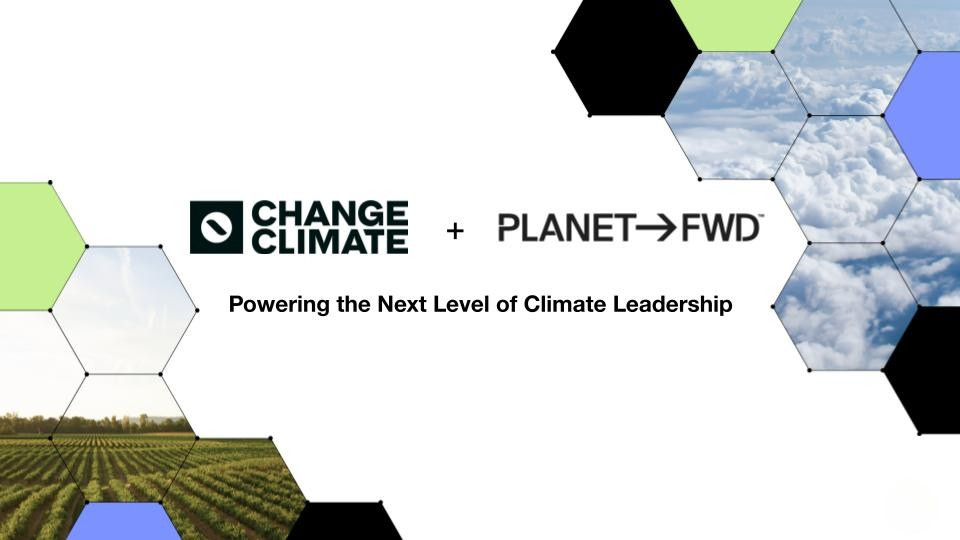
Lubanzi isn’t your typical wine brand. From the very beginning, the company has set out to build something different — a business grounded not just in great taste, but in social and environmental responsibility. Founded in 2016, Lubanzi Wines has taken a bold approach to weaving climate action into every aspect of its operations, from grape to glass.
Long before it was mainstream, the company was focused on achieving net zero and driving social change — from tinkering with their own spreadsheets and research to purchasing verified carbon credits from local South African projects. Overtime, the company has evolved that early experimentation into a more rigorous and holistic approach — one that aligns with The Climate Label’s standards and reflects their commitment to long-term impact.
I spoke with Charlie Brain, owner of Lubanzi Wines, about the company’s climate journey, how The Climate Label got on his radar, and what advice he has for other small brands ready to accelerate and expand their climate action.
Austin: Can you tell me about Lubanzi’s climate journey thus far – how did you get started and how have your efforts evolved?
Charlie: We started our business in 2016 and very early on tried to be conscious of how we could build everything, from the ground up, with social and environmental responsibility in mind. There are numerous certifications and processes when it comes to making wine more sustainable, but we wanted to look beyond just the grapes. That’s when we began exploring ways to take responsibility for our carbon footprint — something that felt like a better fit for us than the traditional sustainability frameworks.
Initially, we tried to build our own certification process—creating spreadsheets, sifting through research studies about emissions, and purchasing carbon credits directly from operations here in South Africa. As time went on, we needed something more robust and accurate that effectively screened carbon credits, and that clearly communicated the value of our efforts. The Climate Label certification process was an amazing solution that checked all of these boxes.
Austin: How do you engage Lubanzi customers in your climate work? Do you share successes as well as setbacks?
Charlie: People connect with stories more than statistics. When we post about a new vintage, for example, we don’t just talk about tasting notes—we share where the grapes came from, who grew them, and how the land is cared for. When we talk about our climate investments, we share the specific projects we’re supporting and why we chose them.
We don’t pretend to have it all figured out, so yes, absolutely—we talk about what we’re still learning and where we need to improve. That honesty creates a shared journey with our customers. Climate work can feel overwhelming, even paralyzing at times, which is why convey that “Hey, we’re trying, too. Here’s what we’ve learned. Maybe it’ll help you make a small shift as well.”
Austin: I love that – and agree that transparency is critical for building trust and engagement! As you looked to pursue an external certification, I imagine you explored dozens of options.What was the decision process like that led you to The Climate Label?
Charlie: We were drawn to The Climate Label because it isn’t a one-size-fits-all solution. It asks the right questions: What are your emissions? Where are your blind spots? How are you planning to improve—not just this year, but five, ten years from now?
We didn’t want a sticker we could slap on a bottle and call it a day. We wanted accountability. We wanted a roadmap that challenged us to dig deeper. And we wanted to be part of a network of other companies wrestling with the same questions and doing the same work.
The Climate Label stood out because it focused not just on measuring emissions, but on building the infrastructure for long-term change—like internal carbon pricing, transition budgets, and supply chain engagement. That holistic approach aligned beautifully with our values.
Austin: Do you have any words of wisdom for other small businesses — winemakers or otherwise – who are considering amping up their climate action and considering The Climate Label certification?
Charlie: Don’t wait until you’re “ready.” Just start. Measure what you can. Be honest about the gaps and build from them. People love to highlight these gaps, but the reality is that best is the enemy of better. Your community will support you, your team will be energized, and the work will ripple further than you think – especially because climate action is good for the bottom line.
Austin: What’s next on Lubanzi’s climate action list? Where do you want to go next?
Charlie: We dream of closing the loop both socially and environmentally. At the heart of our business is a commitment to equitably value everyone and everything that played a role in bringing our wine to life, and the earth is part of that story.
We want to produce wine that’s not just net zero, but climate positive. We want to deepen our organic and regenerative agriculture practices, create even more transparent supply chains, and be a case study in how small businesses can punch above their weight in climate leadership.
Subscribe to the latest news and announcements from our team.
Austin Whitman is CEO and co-founder of The Change Climate Project. For more than two decades he has worked to create new markets and demand for climate solutions. He believes companies and individuals can make a huge difference for the climate if they're just shown how. Outside of work, he is a dad, a woodworker, and spends a lot of time in New England's great outdoors.

Brent Kawamura shares how REI is aligning climate ambition with action — leveraging brand partnerships, funding climate solutions and focusing on credible tools and certifications to accelerate and scale impact across its supply chain.

John Mascari, Co-Founder and President of certified brand Blueland, discusses the company's priorities to reduce energy use, materials, and carbon emissions from making and delivering their products, and how The Climate Label has provided the framework for investing in new climate initiatives.

Planet FWD and the The Change Climate Project are teaming up to help brands transform climate ambition into measurable impact.
Sign up to receive the latest news and announcements from the Climate Neutral team.
Sign up to receive the latest news and announcements from the Climate Neutral team.